#Network Access
Explore tagged Tumblr posts
Text
Role of DNS in Internet Communication - Technology Org
New Post has been published on https://thedigitalinsider.com/role-of-dns-in-internet-communication-technology-org/
Role of DNS in Internet Communication - Technology Org
Domain Name Systems (DNS) refer to hierarchical and decentralized naming systems for computers, services, and other internet-connected resources. A domain name is translated into an IP address used to communicate between devices. When a user enters a domain into their browser, the browser queries the DNS resolver provided by their ISP. Then, the DNS server converts URLs and domain names into IP addresses that computers understand and use. A user types into a browser and a machine interprets that as a command to find a webpage. This process of translation and lookup is called DNS resolution.
Now we understand what DNS is and how it works, we will talk about the role of DNS in Internet communication.
Data center – illustrative photo. Image credit: kewl via Pixabay, Pixabay license
Visit Websites Quickly
Domain names allow people to access websites much easier than IP addresses. Instead of entering “69.63.176.13” into a web browser, a user can just enter “facebook.com.” The DNS server converts domain names into IP addresses. This enables users to access websites.
Enable Internet connectivity
Internet communication relies heavily on DNS and IP. Without DNS, it would be difficult to remember all IP addresses for the websites we visit daily. DNS gives an easily recognizable domain name that can be used to visit websites. In contrast, IP is in the position of routing data packets between internet-connected devices. It ensures that data packets arrive at their target destination without being lost or damaged along the route. In order to find out what your public IP address is, What Is My IP can be used to check your public IP address, IP location, and your ISP.
Provides Internet Safety
In internet communications, DNS and IP security play an important role in ensuring internet safety. DNS attacks can route visitors to malicious websites, while IP spoofing allows hackers to impersonate devices and obtain unwanted network access. DNSSEC (DNS Security Extensions) and IPsec (IP Security) are two technologies that protect DNS and IP respectively and thus secure communications.
Monitor Network Traffic
DNS and IP are critical components for controlling internet network traffic. DNS servers cache commonly requested domain names to reduce the load on the DNS system and improve response times. On the other hand, IP uses various routing protocols, including OSPF and BGP, to control network traffic and guarantee that data packets are effectively delivered between internet devices.
#browser#cache#command#communication#communications#computers#connected devices#connectivity#data#Data Center#devices#DNS#domain name#domain names#extensions#Facebook#hackers#hand#how#Internet#it#monitor#naming#network#Network Access#Other#Other posts#photo#Play#process
0 notes
Text
Mesh it Up Monday: Authorization - The Key to Secure Network Access
Welcome to another Mesh it Up Monday, where we delve into the world of networking with a sprinkle of humor and a whole lot of knowledge! Today, we’re going to unlock the secrets of authorization and discover how it acts as the key to secure network access. So grab your virtual keychain and let’s dive in! Chapter 1: The Magical Key 🔑✨ Imagine you’re at the entrance of a fabulous party. You…

View On WordPress
#access control#authentication#authorization#authorization methods#biometric authentication#digital signatures#network access#network dance floor#network security#RBAC#role-based access control#two-factor authentication#username and password
0 notes
Note
I love Wildcard Kitchen, especially the gambling
Yeah!! Red and I came across it last night! We felt like the seasons of Cutthroat Kitchen we were watching were kind of losing their luster, so when we found this one, we feel like we hit gold.
For those who are wondering what Wildcard Kitchen is, the premise is that various celebrity chefs at Food Network play what they call "culinary poker" all with their own money. It works like this:
First, the cards are dealt. Everyone has to make the same meal, with the same time limit.
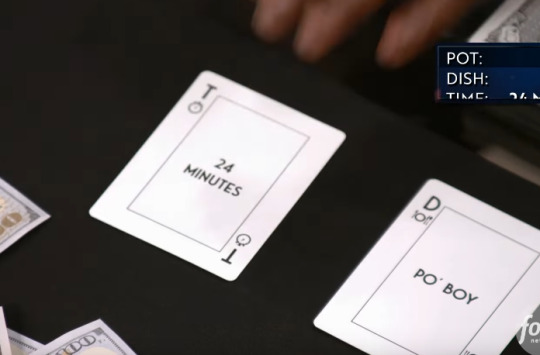
And on later rounds, they're also dealt an ingredient that they all HAVE to use.

Then each of them are dealt a "Wild Card" face down that only applies to them. Some are good! Others, not so much:
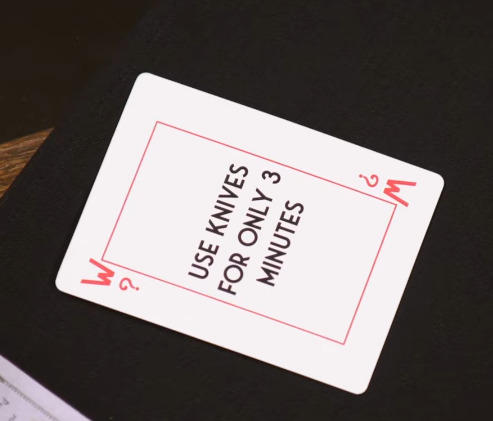
Other wild card examples include stuff like "must use 1 jar of jelly" or good stuff like "can steal an ingredient from your opponent"
From there they start gambling and raising the stakes, and you better not fold, because you paid the buy-in.
So then they players make their dish, and then another Celebrity Chef comes in and judges it, without knowing who made what. Whoever the judge picks wins the entire pot!
Anyway, it's a fun show. Red and I have only caught an episode or two so far, but what a cool concept.
#also in making this post i found out that the food network puts recaps of these episodes up on youtube#if you dont have hulu/dont have access to Cool Guy Websites and still wanna check it out
107 notes
·
View notes
Text

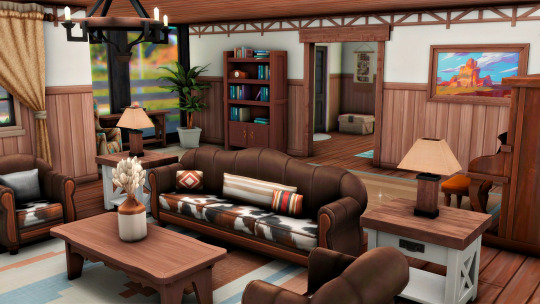





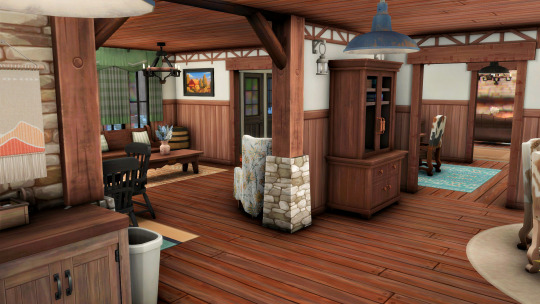
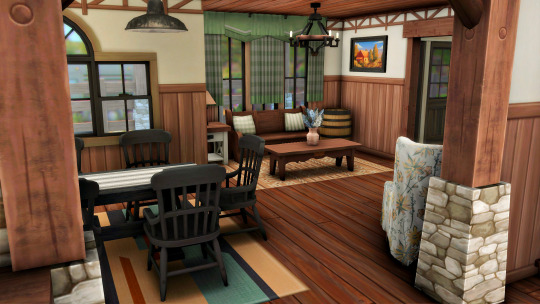







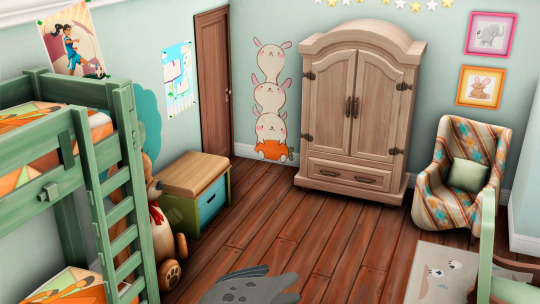
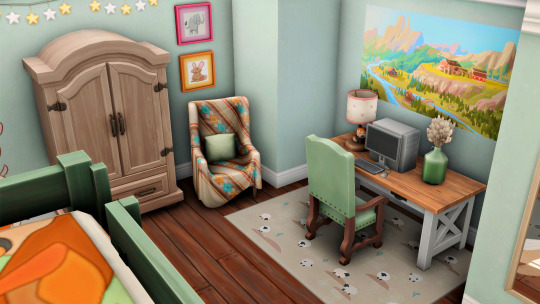


Large Family Home For 6 Sims and 2 Horses!
A large family home for you your Sims and their horses to enjoy!
Completely CC-free.
Requires only Base Game and Horse Ranch to work.
4 bedrooms | 3 bathrooms
§98,522
40 x 30 lot (Chestnut Ridge)
“bb.moveobjects on” will need to be input before placement.
Now available on The Gallery! Origin ID: RachelPedd.
Download (SimFileShare)
⭐ Please consider supporting me on Ko-Fi! ⭐
Happy Simming, everyone!
youtube
#The Sims 4#TS4#The Sims#Sims#Sims 4#The Sims 4 Horse Ranch#RachelPedd#EA Creator Network#Early Access#Large Family House#Chestnut Ridge#50 x 40#Exterior#Interior#Download#The Gallery#SimFileShare#No CC#CC-Free#Base Game#Horse Ranch#Pack-Restricted#Decor#My Builds#YouTube#Speed Build#EA#Maxis#Maxis Match
2K notes
·
View notes
Text
what on earth

hey nerds @ nytimes.com/athletic you guys wanna tell me when the last time us hockey WAS an underdog???? even in a canada-usa echo chamber, the usa has certainly not been an underdog in hockey this century holy shit lmao. 4 nations has turned the hockey populace into morons. can we maybe discuss swiss, german, slovak, or czech hockey being underdogs and catching up instead of writing stupid thinkpieces like this?
#my thing about 4n is i am getting so much mileage out of both the long break and the tournament as a yaoi enthusiast#i wouldn't have know toffoli and kunin were fucking without this break and that's vital information#but every other part of it is just so monumentally stupid#plus everyone taking it seriously as an int'l tournament like no it's just nhlers#if the nhl was really interested in investing in int'l tournaments they'd make worlds and wjc more readily accessible to us audiences#instead of running them on like two random streaming sites completely unconnected to the nhl#my options should not be like nhl network or acorn tv or pirating damn#hockey for ts
40 notes
·
View notes
Text
Would've loved to be a fly on the wall when Rook de Riva had to explain the entire eluvian situation to Viago
#veilguard#veilguard spoilers#has to happen at some point offscreen right because when you pop into treviso for the first time you don't start off at the diamond#so i imagine the eluvian had to be moved there afterwards#'hey boss i have access to a network of magical mirrors that lets me near instantaneously access a good chunk of the known world' says rook#viago does the mental calculations on how much this would save the house in time efficiency and travel fees#(if he can get anyone other than rook to walk through a magic mirror and traverse the fade lmao - but that's a problem for another day)#and briefly enters accountant heaven#imagine how much the crow houses would fight over the eluvians and who got access to them if they were common knowledge#viago de riva#rook de riva
42 notes
·
View notes
Text
WHITETAIL GEIGER GAME ACCESS REQUEST
#whitetail#geiger#game#access#request#access request#geiger games#reindeer games#sum games#patriot games#american patriot#microsoft#brad geiger#william bradley pitt#barack hussein obama#william arthur philip louis#sheridan wyoming#united kingdom#great britain#food network#interface#heads up display#basement#heartbeat sensors#terra earth#earth terra#planet#terrafirma#latin language#deanna troi
63 notes
·
View notes
Text
and to be clear being able to produce good academic writing is not the end all be all of anything lmfao i just have a specific relationship to my writing and being able to take pride in it does mean something important to me <3
#like not to actually get cheesy but the reward of grad school beyond access training etc. for me really was knowing my ability to produce#writing that not only is personally meaningful but also is in fact academic rigorous and communicates ideas clearly#like that's the biggest reward of the whole thing beyond the immediate and tangible stuff like jobs and networking and the like
45 notes
·
View notes
Text
Every time I run into a weird adulting situation I feel so bad for adult orphans. Here I am, mumblety-for-internet-privacy-reasons old, more than a decade an adult, and I'm still reaching out to parents and grandparents going, "How do I determine if X is covered by homeowners insurance? What even is homeowners insurance?"
It's all very well to raise people to adulthood, but how do they get by without this sort of support?
#Nimblermortals Senf#quite honestly they don't#a great deal of the time#judging by what Mum has said in generalities about her work#if you're poor or without a support network#you just don't know you've got access to lifelines so you just suffer#then your health suffers from the stress and you die early
53 notes
·
View notes
Text
The (open) web is good, actually
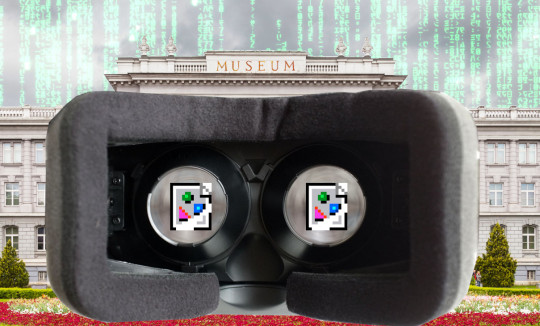
I'll be at the Studio City branch of the LA Public Library tonight (Monday, November 13) at 1830hPT to launch my new novel, The Lost Cause. There'll be a reading, a talk, a surprise guest (!!) and a signing, with books on sale. Tell your friends! Come on down!

The great irony of the platformization of the internet is that platforms are intermediaries, and the original promise of the internet that got so many of us excited about it was disintermediation – getting rid of the middlemen that act as gatekeepers between community members, creators and audiences, buyers and sellers, etc.
The platformized internet is ripe for rent seeking: where the platform captures an ever-larger share of the value generated by its users, making the service worst for both, while lock-in stops people from looking elsewhere. Every sector of the modern economy is less competitive, thanks to monopolistic tactics like mergers and acquisitions and predatory pricing. But with tech, the options for making things worse are infinitely divisible, thanks to the flexibility of digital systems, which means that product managers can keep subdividing the Jenga blocks they pulling out of the services we rely on. Combine platforms with monopolies with digital flexibility and you get enshittification:
https://pluralistic.net/2023/01/21/potemkin-ai/#hey-guys
An enshittified, platformized internet is bad for lots of reasons – it concentrates decisions about who may speak and what may be said into just a few hands; it creates a rich-get-richer dynamic that creates a new oligarchy, with all the corruption and instability that comes with elite capture; it makes life materially worse for workers, users, and communities.
But there are many other ways in which the enshitternet is worse than the old good internet. Today, I want to talk about how the enshitternet affects openness and all that entails. An open internet is one whose workings are transparent (think of "open source"), but it's also an internet founded on access – the ability to know what has gone before, to recall what has been said, and to revisit the context in which it was said.
At last week's Museum Computer Network conference, Aaron Straup Cope gave a talk on museums and technology called "Wishful Thinking – A critical discussion of 'extended reality' technologies in the cultural heritage sector" that beautifully addressed these questions of recall and revisiting:
https://www.aaronland.info/weblog/2023/11/11/therapy/#wishful
Cope is a museums technologist who's worked on lots of critical digital projects over the years, and in this talk, he addresses himself to the difference between the excitement of the galleries, libraries, archives and museums (GLAM) sector over the possibilities of the web, and why he doesn't feel the same excitement over the metaverse, and its various guises – XR, VR, MR and AR.
The biggest reason to be excited about the web was – and is – the openness of disintermediation. The internet was inspired by the end-to-end principle, the idea that the network's first duty was to transmit data from willing senders to willing receivers, as efficiently and reliably as possible. That principle made it possible for whole swathes of people to connect with one another. As Cope writes, openness "was not, and has never been, a guarantee of a receptive audience or even any audience at all." But because it was "easy and cheap enough to put something on the web," you could "leave it there long enough for others to find it."
That dynamic nurtured an environment where people could have "time to warm up to ideas." This is in sharp contrast to the social media world, where "[anything] not immediately successful or viral … was a waste of time and effort… not worth doing." The social media bias towards a river of content that can't be easily reversed is one in which the only ideas that get to spread are those the algorithm boosts.
This is an important way to understand the role of algorithms in the context of the spread of ideas – that without recall or revisiting, we just don't see stuff, including stuff that might challenge our thinking and change our minds. This is a much more materialistic and grounded way to talk about algorithms and ideas than the idea that Big Data and AI make algorithms so persuasive that they can control our minds:
https://pluralistic.net/2023/11/06/attention-rents/#consumer-welfare-queens
As bad as this is in the social media context, it's even worse in the context of apps, which can't be linked into, bookmarked, or archived. All of this made apps an ominous sign right from the beginning:
https://memex.craphound.com/2010/04/01/why-i-wont-buy-an-ipad-and-think-you-shouldnt-either/
Apps interact with law in precisely the way that web-pages don't. "An app is just a web-page wrapped in enough IP to make it a crime to defend yourself against corporate predation":
https://pluralistic.net/2023/08/27/an-audacious-plan-to-halt-the-internets-enshittification-and-throw-it-into-reverse/
Apps are "closed" in every sense. You can't see what's on an app without installing the app and "agreeing" to its terms of service. You can't reverse-engineer an app (to add a privacy blocker, or to change how it presents information) without risking criminal and civil liability. You can't bookmark anything the app won't let you bookmark, and you can't preserve anything the app won't let you preserve.
Despite being built on the same underlying open frameworks – HTTP, HTML, etc – as the web, apps have the opposite technological viewpoint to the web. Apps' technopolitics are at war with the web's technopolitics. The web is built around recall – the ability to see things, go back to things, save things. The web has the technopolitics of a museum:
https://www.aaronland.info/weblog/2014/09/11/brand/#dconstruct
By comparison, apps have the politics of a product, and most often, that product is a rent-seeking, lock-in-hunting product that wants to take you hostage by holding something you love hostage – your data, perhaps, or your friends:
https://www.eff.org/deeplinks/2021/08/facebooks-secret-war-switching-costs
When Anil Dash described "The Web We Lost" in 2012, he was describing a web with the technopolitics of a museum:
where tagging was combined with permissive licenses to make it easy for people to find and reuse each others' stuff;
where it was easy to find out who linked to you in realtime even though most of us were posting to our own sites, which they controlled;
where a link from one site to another meant one person found another person's contribution worthy;
where privacy-invasive bids to capture the web were greeted with outright hostility;
where every service that helped you post things that mattered to you was expected to make it easy for you take that data back if you changed services;
where inlining or referencing material from someone else's site meant following a technical standard, not inking a business-development deal;
https://www.anildash.com/2012/12/13/the_web_we_lost/
Ten years later, Dash's "broken tech/content culture cycle" described the web we live on now:
https://www.anildash.com/2022/02/09/the-stupid-tech-content-culture-cycle/
found your platform by promising to facilitate your users' growth;
order your technologists and designers to prioritize growth above all other factors and fire anyone who doesn't deliver;
grow without regard to the norms of your platform's users;
plaster over the growth-driven influx of abusive and vile material by assigning it to your "most marginalized, least resourced team";
deliver a half-assed moderation scheme that drives good users off the service and leaves no one behind but griefers, edgelords and trolls;
steadfastly refuse to contemplate why the marginalized users who made your platform attractive before being chased away have all left;
flail about in a panic over illegal content, do deals with large media brands, seize control over your most popular users' output;
"surface great content" by algorithmically promoting things that look like whatever's successful, guaranteeing that nothing new will take hold;
overpay your top performers for exclusivity deals, utterly neglect any pipeline for nurturing new performers;
abuse your creators the same ways that big media companies have for decades, but insist that it's different because you're a tech company;
ignore workers who warn that your product is a danger to society, dismiss them as "millennials" (defined as "anyone born after 1970 or who has a student loan")
when your platform is (inevitably) implicated in a murder, have a "town hall" overseen by a crisis communications firm;
pay the creator who inspired the murder to go exclusive on your platform;
dismiss the murder and fascist rhetoric as "growing pains";
when truly ghastly stuff happens on your platform, give your Trust and Safety team a 5% budget increase;
chase growth based on "emotionally engaging content" without specifying whether the emotions should be positive;
respond to ex-employees' call-outs with transient feelings of guilt followed by dismissals of "cancel culture":
fund your platforms' most toxic users and call it "free speech";
whenever anyone disagrees with any of your decisions, dismiss them as being "anti-free speech";
start increasing how much your platform takes out of your creators' paychecks;
force out internal dissenters, dismiss external critics as being in conspiracy with your corporate rivals;
once regulation becomes inevitable, form a cartel with the other large firms in your sector and insist that the problem is a "bad algorithm";
"claim full victim status," and quit your job, complaining about the toll that running a big platform took on your mental wellbeing.
https://pluralistic.net/2022/02/18/broken-records/#dashes
The web wasn't inevitable – indeed, it was wildly improbable. Tim Berners Lee's decision to make a new platform that was patent-free, open and transparent was a complete opposite approach to the strategy of the media companies of the day. They were building walled gardens and silos – the dialup equivalent to apps – organized as "branded communities." The way I experienced it, the web succeeded because it was so antithetical to the dominant vision for the future of the internet that the big companies couldn't even be bothered to try to kill it until it was too late.
Companies have been trying to correct that mistake ever since. After three or four attempts to replace the web with various garbage systems all called "MSN," Microsoft moved on to trying to lock the internet inside a proprietary browser. Years later, Facebook had far more success in an attempt to kill HTML with React. And of course, apps have gobbled up so much of the old, good internet.
Which brings us to Cope's views on museums and the metaverse. There's nothing intrinsically proprietary about virtual worlds and all their permutations. VRML is a quarter of a century old – just five years younger than Snow Crash:
https://en.wikipedia.org/wiki/VRML
But the current enthusiasm for virtual worlds isn't merely a function of the interesting, cool and fun experiences you can have in them. Rather, it's a bid to kill off whatever is left of the old, good web and put everything inside a walled garden. Facebook's metaverse "is more of the same but with a technical footprint so expensive and so demanding that it all but ensures it will only be within the means of a very few companies to operate."
Facebook's VR headsets have forward-facing cameras, turning every users into a walking surveillance camera. Facebook put those cameras there for "pass through" – so they can paint the screens inside the headset with the scene around you – but "who here believes that Facebook doesn't have other motives for enabling an always-on camera capturing the world around you?"
Apple's VisionPro VR headset is "a near-perfect surveillance device," and "the only thing to save this device is the trust that Apple has marketed its brand on over the last few years." Cope notes that "a brand promise is about as fleeting a guarantee as you can get." I'll go further: Apple is already a surveillance company:
https://pluralistic.net/2022/11/14/luxury-surveillance/#liar-liar
The technopolitics of the metaverse are the opposite of the technopolitics of the museum – even moreso than apps. Museums that shift their scarce technology budgets to virtual worlds stand a good chance of making something no one wants to use, and that's the best case scenario. The worst case is that museums make a successful project inside a walled garden, one where recall is subject to corporate whim, and help lure their patrons away from the recall-friendly internet to the captured, intermediated metaverse.
It's true that the early web benefited from a lot of hype, just as the metaverse is enjoying today. But the similarity ends there: the metaverse is designed for enclosure, the web for openness. Recall is a historical force for "the right to assembly… access to basic literacy… a public library." The web was "an unexpected gift with the ability to change the order of things; a gift that merits being protected, preserved and promoted both internally and externally." Museums were right to jump on the web bandwagon, because of its technopolitics. The metaverse, with its very different technopolitics, is hostile to the very idea of museums.
In joining forces with metaverse companies, museums strike a Faustian bargain, "because we believe that these places are where our audiences have gone."
The GLAM sector is devoted to access, to recall, and to revisiting. Unlike the self-style free speech warriors whom Dash calls out for self-serving neglect of their communities, the GLAM sector is about preservation and access, the true heart of free expression. When a handful of giant companies organize all our discourse, the ability to be heard is contingent on pleasing the ever-shifting tastes of the algorithm. This is the problem with the idea that "freedom of speech isn't freedom of reach" – if a platform won't let people who want to hear from you see what you have to say, they are indeed compromising freedom of speech:
https://pluralistic.net/2022/12/10/e2e/#the-censors-pen
Likewise, "censorship" is not limited to "things that governments do." As Ada Palmer so wonderfully describes it in her brilliant "Why We Censor: from the Inquisition to the Internet" speech, censorship is like arsenic, with trace elements of it all around us:
https://www.youtube.com/watch?v=uMMJb3AxA0s
A community's decision to ban certain offensive conduct or words on pain of expulsion or sanction is censorship – but not to the same degree that, say, a government ban on expressing certain points of view is. However, there are many kinds of private censorship that rise to the same level as state censorship in their impact on public discourse (think of Moms For Liberty and their book-bannings).
It's not a coincidence that Palmer – a historian – would have views on censorship and free speech that intersect with Cope, a museum worker. One of the most brilliant moments in Palmer's speech is where she describes how censorship under the Inquistion was not state censorship – the Inquisition was a multinational, nongovernmental body that was often in conflict with state power.
Not all intermediaries are bad for speech or access. The "disintermediation" that excited early web boosters was about escaping from otherwise inescapable middlemen – the people who figured out how to control and charge for the things we did with one another.
When I was a kid, I loved the writing of Crad Kilodney, a short story writer who sold his own self-published books on Toronto street-corners while wearing a sign that said "VERY FAMOUS CANADIAN AUTHOR, BUY MY BOOKS" (he also had a sign that read, simply, "MARGARET ATWOOD"). Kilodney was a force of nature, who wrote, edited, typeset, printed, bound, and sold his own books:
https://www.theglobeandmail.com/arts/books/article-late-street-poet-and-publishing-scourge-crad-kilodney-left-behind-a/
But there are plenty of writers out there that I want to hear from who lack the skill or the will to do all of that. Editors, publishers, distributors, booksellers – all the intermediaries who sit between a writer and their readers – are not bad. They're good, actually. The problem isn't intermediation – it's capture.
For generations, hucksters have conned would-be writers by telling them that publishing won't buy their books because "the gatekeepers" lack the discernment to publish "quality" work. Friends of mine in publishing laughed at the idea that they would deliberately sideline a book they could figure out how to sell – that's just not how it worked.
But today, monopolized film studios are literally annihilating beloved, high-priced, commercially viable works because they are worth slightly more as tax writeoffs than they are as movies:
https://deadline.com/2023/11/coyote-vs-acme-shelved-warner-bros-discovery-writeoff-david-zaslav-1235598676/
There's four giant studios and five giant publishers. Maybe "five" is the magic number and publishing isn't concentrated enough to drop whole novels down the memory hole for a tax deduction, but even so, publishing is trying like hell to shrink to four:
https://pluralistic.net/2022/11/07/random-penguins/#if-you-wanted-to-get-there-i-wouldnt-start-from-here
Even as the entertainment sector is working to both literally and figuratively destroy our libraries, the cultural heritage sector is grappling with preserving these libraries, with shrinking budgets and increased legal threats:
https://blog.archive.org/2023/03/25/the-fight-continues/
I keep meeting artists of all description who have been conditioned to be suspicious of anything with the word "open" in its name. One colleague has repeatedly told me that fighting for the "open internet" is a self-defeating rhetorical move that will scare off artists who hear "open" and think "Big Tech ripoff."
But "openness" is a necessary precondition for preservation and access, which are the necessary preconditions for recall and revisiting. Here on the last, melting fragment of the open internet, as tech- and entertainment-barons are seizing control over our attention and charging rent on our ability to talk and think together, openness is our best hope of a new, good internet. T
he cultural heritage sector wants to save our creative works. The entertainment and tech industry want to delete them and take a tax writeoff.
As a working artist, I know which side I'm on.

If you'd like an essay-formatted version of this post to read or share, here's a link to it on pluralistic.net, my surveillance-free, ad-free, tracker-free blog:
https://pluralistic.net/2023/11/13/this-is-for-everyone/#revisiting

Image: Diego Delso (modified) https://commons.wikimedia.org/wiki/File:Museo_Mimara,_Zagreb,_Croacia,_2014-04-20,_DD_01.JPG
CC BY-SA 4.0 https://creativecommons.org/licenses/by-sa/4.0/
#pluralistic#ar#xr#vr#augmented reality#extended reality#virtual reality#museums#cultural preservation#aaron cope#Museum Computer Network#cultural heritage#glam#access#open access#revisiting#mr#mixed reality#asynchronous#this is for everyone#freedom of reach#gatekeepers#metaverse#technofeudalism#privacy#brick on the face#rent-seeking
189 notes
·
View notes
Text

After struggling for like a week, i finally finished making my son!!! He is not well put together because some things just refused to click in place or slide on fully. It was so frustrating bc i would try to get it to work and it'd hurt my hands and I cannot afford an hand & arm pain flare up this summer. BUT NOW HES DONE!!!! LOOK AT HIM!!!
Anyway now I gotta figure out what to do with his box LMAO
#netto.exe yaps#model kit#megaman#megaman battle network#megaman.exe#rockman.exe#now i just gotta figure out how to display him in the rockman shelf i wanna put him in#in front of my gba boxes or behind?#regardless im glad i can put him and his instruction manual on display now#i did not have a good time making him but i would 100% do it again#debating seeing if i can commission my friend to make me a figure around the same size but of Netto#so i can put them next to eachother#we have access to 3d printers and id paint him it could work#anyway once i pretty up my display shelves a little bit more ill share photos of them#especially now since he is done and ive rearranged my CD shelf to show of my zero CDs better#shoutout to Zero Mythos and Zero Resonant Vie CDs for being the soundtrack of my suffering#made it a lot more bearable lol
16 notes
·
View notes
Text
Happy New Year!
Soul Operator will return January 13th, 2025.
#podcast#audio drama#souloperatorpod#fiction podcast#horror podcast#horror#horror audio drama#solo ttrpg#ttrpg#soul operator#rusty quill network#rusty quill#soul operator podcast#soul operator pod#for early access to episode 11 check out our patreon
30 notes
·
View notes
Note
What's the Wardi cultural take on Akoshos sleeping with/partnering with/marrying other Akoshos?
It's not highly regulated to a degree that there are overwhelming cultural norms about it. There's a lot of societal focus on akoshos being theoretically suitable sexual partners for both men and women due to being dual-gendered, but not to an extent that relationships with One Another are stigmatized.
They also largely get to escape from the most severe concerns about penetrator/penetrated power dynamics because they're not regarded as Men (they're regarded as dual-gendered, and they're a female social class on every practical level), there's no status of manhood to Lose by receiving sexual penetration. The only real thing you see in that department is people assuming that one acts as 'the man' and one acts as 'the woman', but this is largely due to preoccupation with a notion of sex being Penetration With A Penis (and that Penetration With A Penis means that one person is in a Man's Role and one person is in a Woman's Role). But this will not be regarded as unnatural as in same-gender male relations, akoshos will Have to take up a position in this sexual dichotomy if they want to have Real Sex (Penetration With A Penis) with each other, and this is not unnatural and doesn't involve gaining or losing status since they are simultaneously male and female, not men.
So like you might see individual culture critics finding stuff to nitpick about it as their annoyance of the week or a singular Guy here or there who thinks it's weird, but this isn't a widespread norm. The vast majority of people don't give a shit about akoshos having sex with each other. The worst thing you're likely to experience Solely by virtue of being in an akoshos-akoshos relationship is someone asking you (probably with genuine curiosity) which one does the man stuff and which one does the woman stuff.
Akoshos also don't experience Hard expectations for marriage (though there are societal pressures that make marriage an attractive safety net all the same, ESPECIALLY marriage to a man) so unofficial life-partnerships between akoshos are pretty much the Only same gender partnerships between unwed people that are going to go unquestioned. ((Sworn brotherhood is technically a same gender life partnership for men that is Functionally similar to marriage (in that it's a kin-making practice between unrelated adults), but the tradition is Built upon the assumption that both parties will be married to women and that a primary goal of this kinship is to provide security for both parties' wives and children)). Marriage obligations in general are more lax in the economically secure but not Wealthy lower mercantile classes (as obligations to support and perpetuate one's family are universal, but these obligations can be filled simply by having at least One son who can get hitched, and marriages in the lower classes have no political functions and therefore there's less reason to ensure All your children are wed (there's still incentives like dowry, but this is not desperately needed when a family is economically secure)). So akoshos in this class group tend to have a Lot more freedom in terms of their life arrangements and chosen partners (though still experience the limiting frameworks of structural misogyny in other capacities).
The only thing that is out of the picture is akoshos/akoshos marriage. Marriage in this society has a predominantly reproductive function, the concept of reproductively non-viable marriages is generally considered absurd. This is not JUST this culture's form of homophobia, as marriage is a very practical arrangement at its core - both in a reproductive capacity and as bedrock for the patriarchal blood-kinship family system that forms the core social unit. The idea of same gender marriage isn't just absurd because 'ewwww weird' it's like, that Cannot work within this system, it Cannot fill core functions of what a marriage intends to do here, the ways on which marriage and kinship are BUILT makes same gender marriage practically (rather than just socially) untenable.
The sole exception to the 'marriage = reproductively viable" rule is that akoshos can be married to men (which in practice is almost always as a remarriage after a man has secured At Least an heir). This has a Little bit of internal logic here in that they perform predominantly female social roles (thus are suited to being a wife, even if they can't bear children) (and also on practical levels of them having the same legal status as women) but it's really more of a 'this is just how it's always been' kind of thing. A lot of the older pre-Wardi identity dual-gender roles that got mashed together under the 'akoshos' name would have involved marriage to a man as a second wife/concubine, in addition to his primary wife who would bear his children. Men potentially having multiple spouses has not been retained as a cultural practice, but the notion that an akoshos Can be a wife to a man has survived into modern day legal and doctrinal practices around marriage.
So like this being said, marriage as it is legally defined is only between a man and a woman, a man and an akoshos, or a woman and an akoshos. In practice the latter two are comparatively VERY rare- a man/akoshos marriage cannot provide children (though an akoshos can practically fulfill all other obligations and duties of a wife), a woman/akoshos marriage Can provide children (and while akoshos cannot function as a male heir, these children Will take their akoshos-parent's family name (though the wife retains her father's family name)), but akoshos are legally grouped with women in terms of rights and privileges (including being permanently under legal domain of their father unless they have been legally handed off to a male husband) and Cannot provide hard power patriarchal support that this family system is built upon and therefore depends upon, which makes these marriages socio-economically insecure. They can obviously still be a good partner and parent, but this is not the same as having the Legal hard power of a patriarch.
Akoshos marrying each other would be reproductively and socially nonviable, and is treated as a similarly absurd concept to a man marrying a man or a woman marrying a woman. It's just not a part of the marriage and kinship framework, it's not a thing that you can Do.
#Akoshos are also probably like.... 1-2% of the population. Like its an Accepted gendered space but not a large one so it's less#'managed' in a lot of senses#It's actually kind of hard to 'access' the akoshos space to begin with. Like parents look for Signs In Early Childhood and most#akoshos are typically assigned their gender early.#If you don't manage to access this space there's a good chance of being Stuck as a man with any deviance from your expected#gender roles being the HIGHLY unaccepted 'male effeminacy' which is a VERY different concept than (though obviously has tensions With)#being akoshos. A lot of akoshos self-label as adults after losing support from their families in part for being '''effeminate men'''#(this is also kind of the only instance in which gender self-identification occurs on a basis that will be Broadly accepted. Though#this happens in the context of already being detached from one's familial support network and people not knowing you self-assigned)#There are also certainly Some cases where akoshos self-identify as adults and this is accepted by their fathers. For a variety#of reasons but unfortunately often it's going to be like-#'we must have missed something but whatever. glad our kid is actually supposed to be this way and isn't just effeminate'#Also much less likely to be accepted if they're an expected male heir without brothers to take up the role in their stead#And VERY unlikely in upper classes where family members are public figures. If you've been introduced as a man here you're probably#out of luck.#(Like you'll see accusations that adult-assigned akoshos are just pretending in order to disguise being male effeminates)#This position isn't freedom from gender norms or like. The equivalent of an accepted trans identity. It's its own assigned gender#space in an Expanded but strict binary with expanded but strict roles#Also the societal trends over centuries are showing signs of increasing collapse between the notions of 'effeminate man' (bad)#and 'akoshos' (normal). At this point the concepts are still very separate but the current societal trajectory is leaning towards the#akoshos role being phased out of its normalization (in tandem with Wardi culture becoming more intensely patriarchal with#the collapse of Wardi groups into one identity)#Like 600 years ago there was NOT a concept of 'effeminate man' and proto-akoshos roles were a#more central concept that enveloped divergences from expected masculinity. Whereas now the akoshos space is significantly narrower#and the concept of 'effeminate man' exists in tandem as a stigmatized descriptor. And things have gotten to the point of#people claiming that ''effeminate men'' will 'pretend' to be akoshos#The akoshos identity becoming stigmatized/phased out isn't inevitable but the tensions around it are definitely growing#Though there's also a sense that Peak Patriarchy has been hit and you're starting to see people pushing back at these norms in fairly#notable ways. There's not going to be like. A feminist revolution but civilian women getting more political freedoms (while the overall#context stays patriarchal) is a likely outcome which could also have side benefits of relaxing masculinity standards Somewhat
43 notes
·
View notes
Text

Oh this guy doesnt look suspicious at ALL /s
14 notes
·
View notes
Note
Is the English teacher good? I believe in bja supremacy but the trailer made it look like very standard sitcom humor
it's honestly pretty solid! i would say it's more toned down than caleb gallo and they're doing something a bit closer to sitcom-brand pseudorealism but a lot of the signature stuff (odd/unnatural-sounding dialogue, the camera work during conversations, the visual gags, the casual absurdism, etc) is still there. i do think that it's not hitting the sort of pat heartwarming triumph beats that i would expect from a standard sitcom with the same premise, and there's a lot of interest in exploring sort of casual self-absorption which has always been an interesting aspect of the characters bja writes/plays. i think it's worth trying out an ep or two and they are only 20 minutes! and his take on what's funny about being gay in sort of a modern american context has always been a lot more interesting and resonant to me than 99% of other "gay comedy" writing
#i have actually a lot of thoughts about the development of a sort of mainstream gay sitcom vocabulary#i do think that english teacher is subject to some of those same pressures due to just the nature of being a prime time network sitcom#but i think it does a decent job of walking that line between having a distinct creative identity and being marketable enough to succeed#it did feel recognizably like it's written for the same sort of audience as caleb gallo#it just also has some slightly easier access points for people who might need to be eased in to his style#anonymous#ask and receive
22 notes
·
View notes
Text
"Wow we've literally never seen Sans move in an entire game as much as he did at the end of chapter 4" that's the power of having regular access to antidepressants babyyyyy!!
#i do think that even without time loop trauma he would have depressive episodes#get that man some SSRIs#it won't fix him but it'll help a lot#deltarune spoilers#deltarune#deltarune chapter 4#deltarune chapter 4 spoilers#possibly one of the biggest downsides to being in the underground#not having access to a worldwide network of psychology research and developments in the mental health field
9 notes
·
View notes